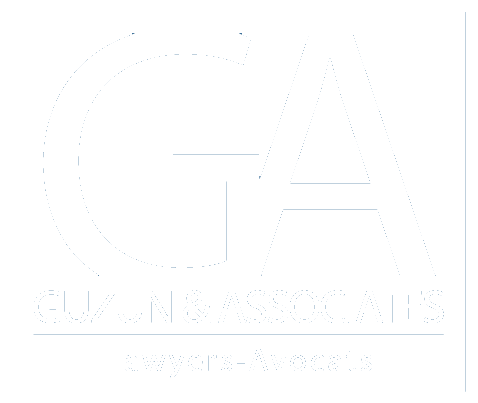Criminal Charges in Quebec: What Happens After Arrest?
Criminal Charges in Quebec: What Happens After Arrest?
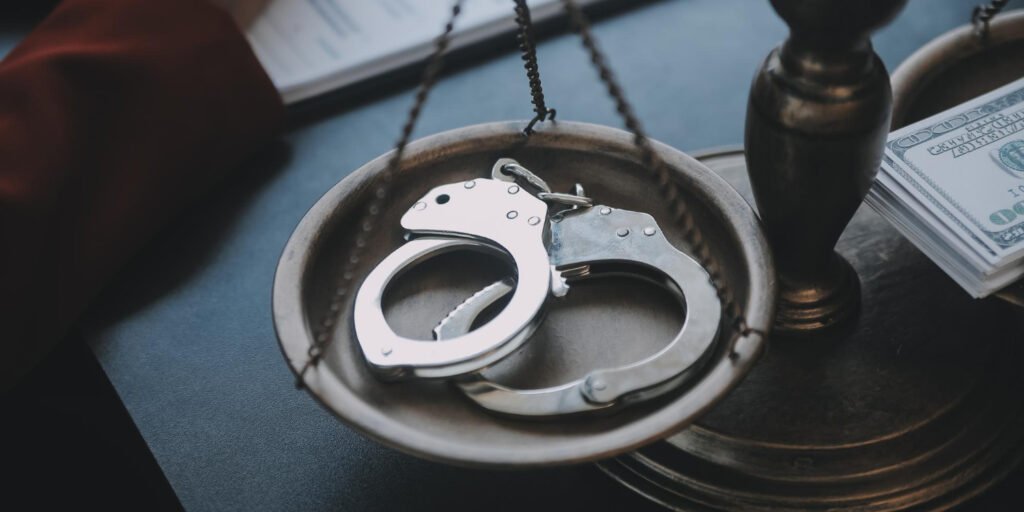
As a criminal defence lawyer in Montreal, I know that an arrest can be one of the most stressful and destabilizing moments in anyone’s life. In a matter of minutes, you may find yourself in handcuffs, stripped of your freedom, and facing immediate police questioning. Every decision you make at this stage can have long-term consequences for your job, your family, and even your freedom.
In over 20 years of defending clients in Quebec, I have seen how the right approach in the first hours after an arrest can completely change the outcome of a case. This article explains what happens after an arrest, what your rights are at each stage, and how to avoid common mistakes that could harm your defence.
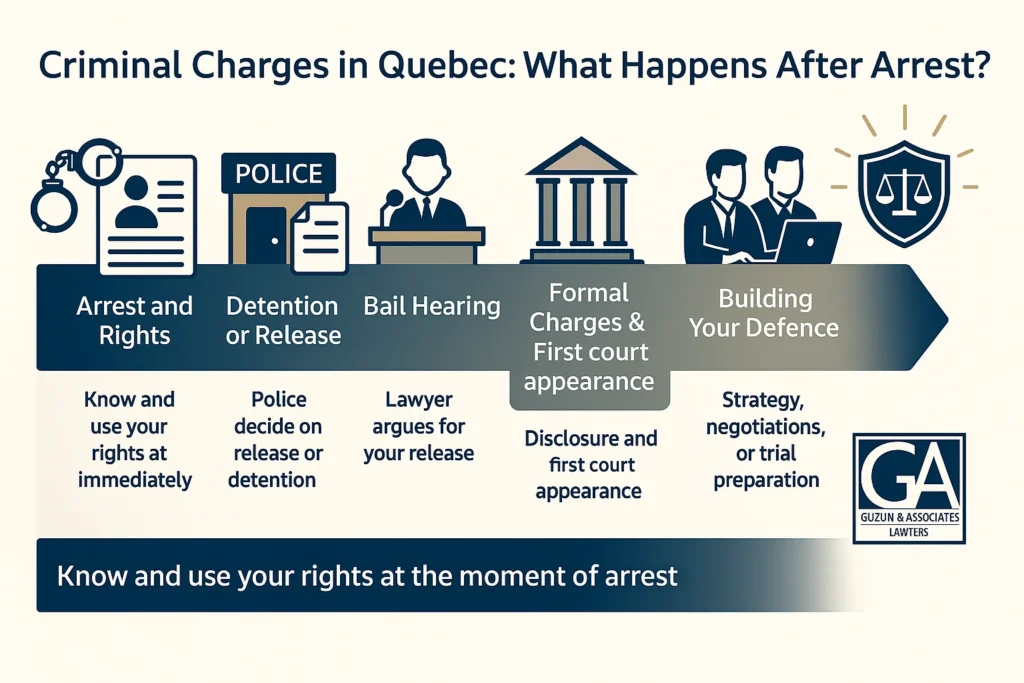
1. Your Rights at the Moment of Arrest
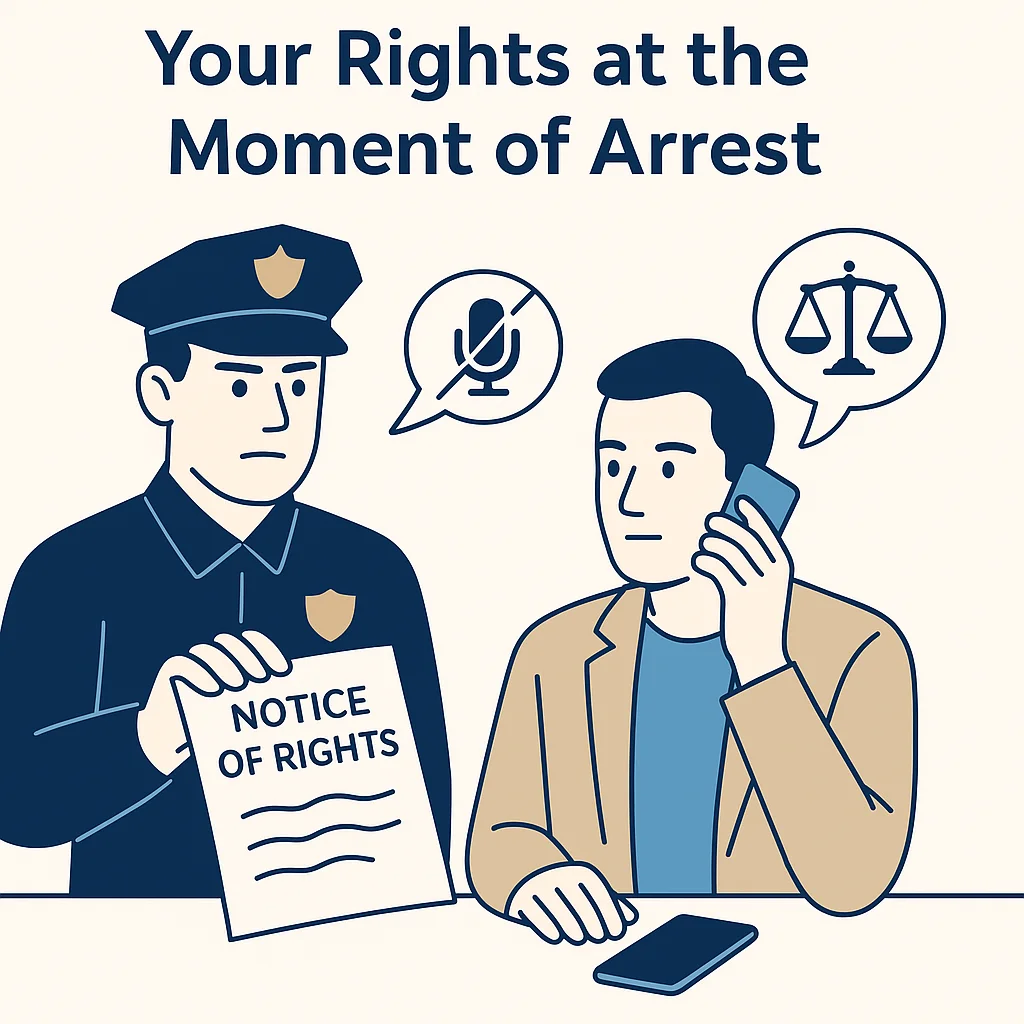
From the moment you are arrested, the Canadian Charter of Rights and Freedoms guarantees you certain protections. Police must:
- Clearly explain why you are being arrested.
- Inform you of your right to remain silent.
- Give you the opportunity to speak with a lawyer immediately.
Why these rights matter
In my experience, most mistakes happen in the first few hours after an arrest. People are shocked and want to explain themselves, hoping this will help. Unfortunately, anything you say can and will be used against you. Even innocent explanations can be misinterpreted.
Lawyer’s advice: Politely tell the police you wish to remain silent and that you want to speak with a lawyer. Do not try to justify yourself or answer questions before consulting counsel.
From my practice – when silence saved the case
A client was recently arrested for alleged shoplifting in Montreal. She was in shock and wanted to “clear up the misunderstanding” with the police. I firmly advised her to remain silent. Later, when we reviewed the evidence, it was clear the Crown’s case was extremely weak. Because she had not made any statements, we secured a full withdrawal of charges before trial. Had she tried to explain herself at the scene, her words could have been twisted and used against her.
2. Police Detention or Release
After an arrest, police decide whether to release you or hold you until a bail hearing. Their decision depends on the seriousness of the allegations, your criminal history, and whether they believe you might flee or pose a risk to the public.
Possible outcomes
- Release with a promise to appear in court
- You sign a document committing to attend court on a specific date.
- Failing to appear can result in additional charges.
- Release with conditions
- Conditions may include:
- Avoiding certain individuals or locations.
- Observing a curfew.
- Abstaining from alcohol or drugs.
- Breaching conditions is a separate criminal offence.
- Conditions may include:
- Detention until a bail hearing
- If police decide not to release you, they must bring you before a judge or justice of the peace for a bail hearing within 24 hours.
From my practice – how a strong release plan changed the outcome
I defended a young man accused of assault who was at high risk of being detained until trial. We quickly prepared a detailed release plan that included a reliable surety willing to supervise him and strict bail conditions. The court agreed to release him. He was able to continue working and supporting his family while we built his defence.
3. The Bail Hearing
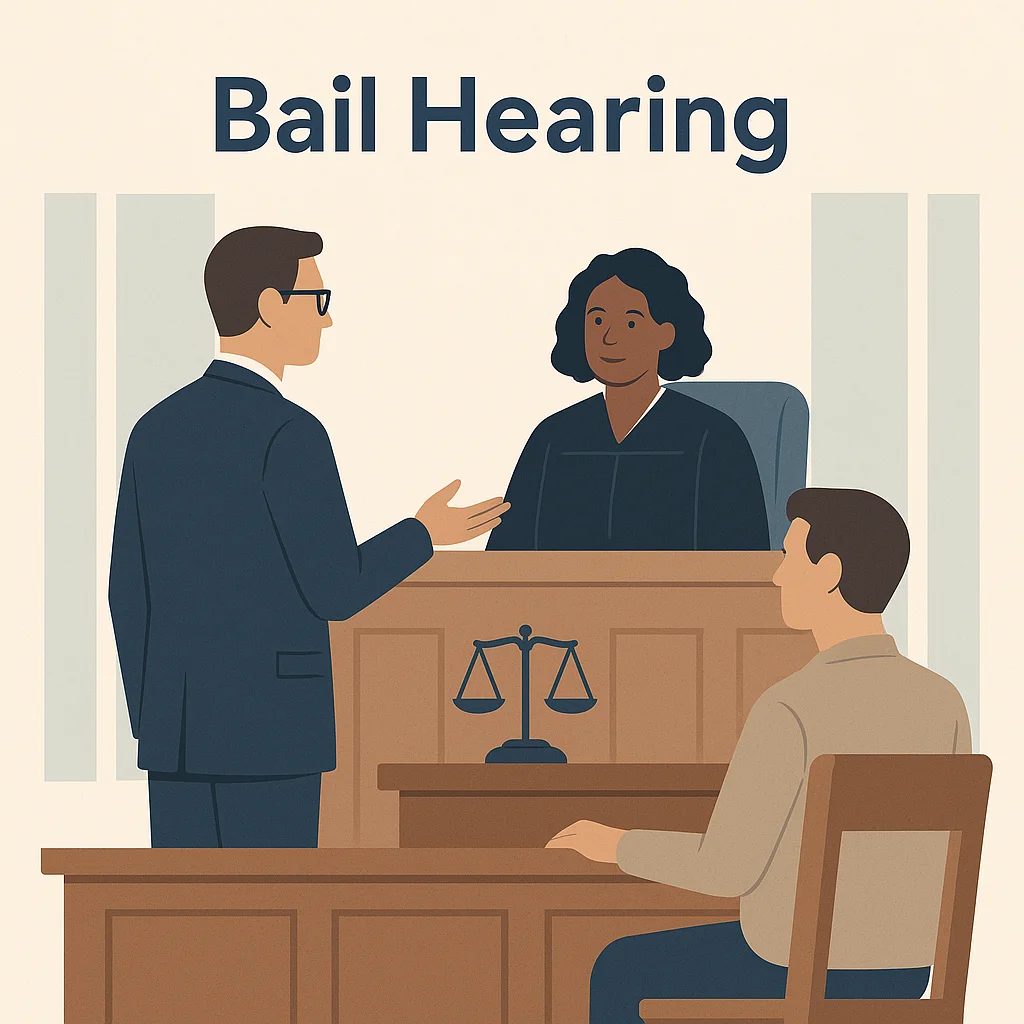
If police do not release you, a bail hearing (also known as a “show cause” hearing) will take place within 24 hours of your arrest.
What happens at a bail hearing
- The Crown prosecutor explains why you should remain in custody.
- Your defence lawyer must show why you can be safely released, often by proposing strict conditions or a surety.
What the court considers
- Will you return to court as required?
- Are you a risk to public safety?
- Would releasing you undermine public confidence in the justice system?
Why preparation is critical
I have seen clients who appeared at bail hearings without a lawyer and ended up spending months in pre-trial detention. One unsuccessful bail hearing can derail your life: job loss, damaged relationships, and intense pressure to plead guilty just to get out.
Lawyer’s advice: A bail hearing is not a formality. It is your best opportunity to secure your release while your case is pending.
4. Formal Charges and the First Court Appearance
After your arrest, the Crown prosecutor reviews the police evidence and decides whether to formally lay charges. If charges are filed, you will be given a date for your first court appearance.
What to expect
- The charges will be read to you.
- Your lawyer will request disclosure – the complete evidence package, including police reports, witness statements, and any video or forensic evidence.
- You can enter a plea or ask for more time to review the evidence.
Why disclosure is so important
Early access to disclosure allows your lawyer to assess the strength of the Crown’s case. Weak or improperly obtained evidence can be used to negotiate reduced charges, alternative resolutions, or even a withdrawal of the case.
From my practice – when disclosure changed everything
A client was charged with assault. We obtained disclosure immediately after the first court appearance and discovered contradictions in the witnesses’ statements. By presenting these inconsistencies to the Crown, we secured a complete withdrawal of charges before the case ever reached trial.
Tip: Do not plead guilty at your first appearance just to “get it over with.” You could be giving up valid legal defences.
5. Building Your Defence

Once charges are laid, the case moves toward negotiation, resolution, or trial. Early and thorough defence work is crucial at this stage.
What we do for our clients
- Analyze the evidence: We look for procedural errors, inconsistencies, and weaknesses in the Crown’s case.
- Negotiate with the prosecutor: Many cases can be resolved with reduced charges or alternatives such as conditional discharges or diversion programs.
- Prepare a full trial strategy: If the case proceeds to trial, we prepare witnesses, gather expert evidence, and develop a strong cross-examination plan.
From my practice – avoiding a criminal record
A client charged with minor drug possession contacted me immediately after his arrest. We showed that the offence was minor and that he had no prior record. I negotiated a conditional discharge, meaning he avoided a criminal record entirely. This preserved his employment and ability to travel abroad.
Common Questions About Criminal Charges in Quebec
Will I have to go to jail?
Not necessarily. Many people are released after arrest, either directly by police or at a bail hearing held within 24 hours. Whether you remain in custody depends on factors such as:
- The seriousness of the allegations.
- Whether you have a prior criminal record.
- The Crown’s belief about whether you are a flight risk or a danger to the public.
In my practice, I often see clients who fear the worst. The reality is that a strong release plan, presented by your lawyer at the bail hearing, can dramatically increase your chances of returning home while your case moves forward.
Do I have to talk to police?
Absolutely not. You have the fundamental right to remain silent and to speak with a lawyer before answering any questions. This right applies from the moment of arrest and continues throughout the investigation.
It’s important to understand that police questioning is designed to gather evidence – not to “clear your name.” Even casual remarks can be taken out of context and used against you later in court.
Lawyer’s advice: Politely state, “I wish to remain silent and speak with my lawyer,” and then stop talking. This is not a sign of guilt – it is the smartest way to protect your rights.
How long will the process take?
It depends on the complexity of your case and whether it goes to trial.
- Straightforward cases – where the evidence is weak or a resolution is reached early – may be resolved in as little as a few months.
- Contested cases – especially those involving multiple witnesses or serious charges – can take a year or longer to conclude.
Delays can also occur if the Crown needs time to disclose evidence or if the court calendar is overloaded. One of the key benefits of hiring a lawyer early is that we can push to obtain disclosure quickly, identify weaknesses in the case, and move the process forward without unnecessary delays.
Can I work or travel while my case is pending?
It depends on the bail conditions imposed at the time of your release. Conditions may restrict your ability to:
- Travel outside your city, province, or country.
- Work in certain jobs, especially if they relate to the alleged offence.
- Contact specific individuals, even family members, if they are involved in the case.
If bail conditions are too restrictive, your lawyer can request a variation from the court. I have successfully helped clients modify conditions so they could continue working, attend school, or visit family abroad while their case was pending.
What happens if I breach bail conditions?
Breaching a condition – even accidentally – is treated as a separate criminal offence in Quebec. You could be re-arrested and face additional charges on top of your existing case. This is why it’s critical to understand each condition clearly and ask your lawyer to clarify anything that seems vague.
Can a criminal record be avoided?
In many cases, yes. There are legal options such as diversion programs, conditional discharges, or negotiated resolutions that can help you avoid a permanent criminal record. These options depend on the nature of the charges, your personal history, and the strength of the evidence.
From my practice: I have negotiated conditional discharges for clients even in cases that initially seemed unwinnable. Acting early and presenting the right evidence can make all the difference.
Why Early Legal Advice Matters

I often meet people who waited too long to seek legal advice and now face problems that could have been avoided:
- Unfair bail conditions that disrupt their family or work life.
- Missed deadlines that limit their defence options.
- Convictions that might have been prevented with early intervention.
When you consult a lawyer immediately after an arrest, you:
- Understand your rights and options from the beginning.
- Avoid mistakes that can harm your defence.
- Have a tailored strategy in place to resolve your case quickly and effectively.
Your best defence starts the moment you call a lawyer. Acting quickly gives you the advantage of preparation and control over the process.
Conclusion: Speak to a Montreal Criminal Lawyer Today
If you or a loved one has been arrested in Quebec, you do not have to face the justice system alone. My team at Guzun & Associates has defended clients in criminal matters for over 20 years. We understand how high the stakes are and fight relentlessly for the best possible outcome.
Book a consultation today:
- Call us at +1 (514) 842‑7414
- Email us at office@avocatguzun.com
- Meet us in person at our Old Montreal office or schedule an online consultation.
One free orientation call can give you the clarity and direction you need to take control of your situation and protect your future.
